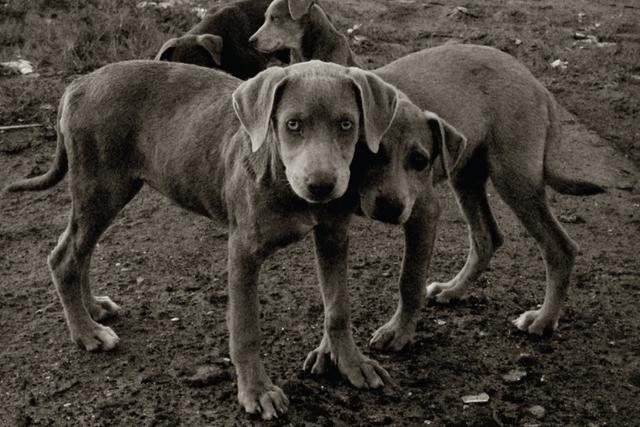What Is A Dog?
"Here were animals that had their own unique kind of social behaviours. So we started to study them."
"I taught classes in the Mexico City dump."
"[Rescue groups] kidnap and mutilate [street dogs, from the Caribbean and elsewhere to bring them to American shelters to live as pets] where they are made totally dependent."
Raymond Coppinger, professor, Hampshire College, Amherst, Massachusetts
 |
| Ray and Lorna Coppinger, Hampshire College, What Is A Dog? |
There are thought to be globally, around 250 million dogs that are household pets, companions to people, domesticated and wholly dependent on humans to sustain their lives. These are the dogs we see as we go about our daily business, accompanied always by their owners, taking them for walks and fuelling a pet-dog industry from food grooming services to veterinarian services.
We do know that there are feral dogs living in societies that have accustomed themselves to seeing dogs returned to nature, foraging and forging a life for themselves that we view as miserable as they become ill, starve and die prematurely. People passionately care for the welfare of dogs. We have a bond with dogs as with no other creature on Earth. They are affectionate toward us, rewarding us for our affection toward them.
 |
| A dog at a ceremony marking the start of the monsoon season at Wat Bo Temple, in Siem Reap, Cambodia, in July 2014. Jean-Philippe Dobrin |
They are reliable and companionable, and caring creatures, and we strive to ensure that their too-brief lives have meaning and dignity. But we are oblivious to the reality that aside from the domesticated dogs we so admire and love, there are dogs that are wild, that have never known life as a cosseted companion to a human being.
Lorna and Raymond Coppinger have their theories about man's best friend, when dogs are not man's best friend, but harbour their own responsibilities to themselves. They posit that on Earth there are about a billion dogs. And since 250-million of that total is accounted for as pets, another 750-million -- or three times the number of global pets -- are other types.
They are called village dogs, street dogs, free-breeding dogs and their purview is the world's garbage dumps. These are not, assert the Coppingers, stray dogs or lost pets, but rather scavengers successfully adapting themselves to care for themselves and they represent the closest specimens of the dogs that originated thousands of years ago.
Specializing in canine science for decades, the Coppingers, biologist and science writer, have shed light on the emergence of working dogs; sled dogs, herding dogs, sheep-guarding dogs, as well as the origin and evolution of dogs.
Dogs, according to the Coppinger theory, were self-domesticated when some wild canines understood that hanging around where humans live could be useful. These dogs evolved as scavengers whose dependence on humans was not emotional but practical. In the 1990s their travels took them to various parts of the world, where they noticed street dogs everywhere.
According to the Coppingers, village dogs reflect a common heritage whether they are in Africa, Mongolia, China or the Americas. Like any other species their numbers are dependent on their supporting food source. In the tropics, according to the Coppingers, food waste from about 100 people will produce enough garbage to support seven free-living dogs.
A biologist at the Cornell University College of Veterinary Medicine in Ithaca, New York, Adam Boyko has compiled village dogs' DNA from around the world. He reached the conclusion that village dogs in Mongolia are central to the issue of dog diversity; geographically closest to where dogs first evolved.
Last fall a study was published by Wieslaw Bogdanowica at the Polish Academy of Sciences in Warsaw which led a team of scientists to analyze the DNA of free-breeding dogs in Eurasia. These dogs, it was concluded, are different from purebreds and mixed breeds. "I would like to call them superbreed", stated Dr. Bogdanowicz.
Labels: Animal Welfare, Bioscience, Nature

0 Comments:
Post a Comment
<< Home